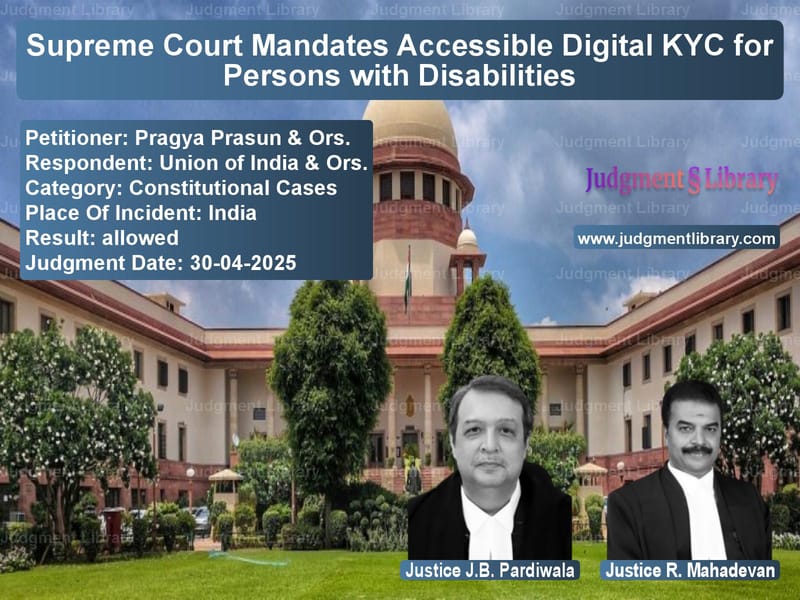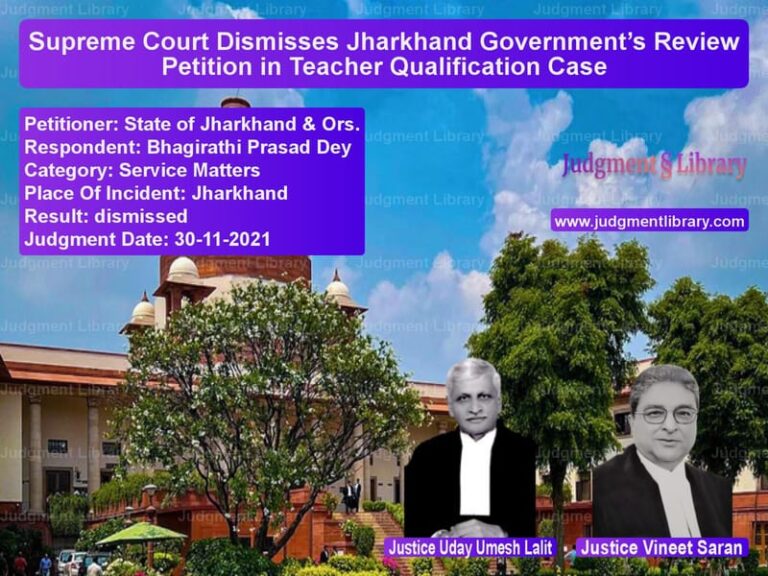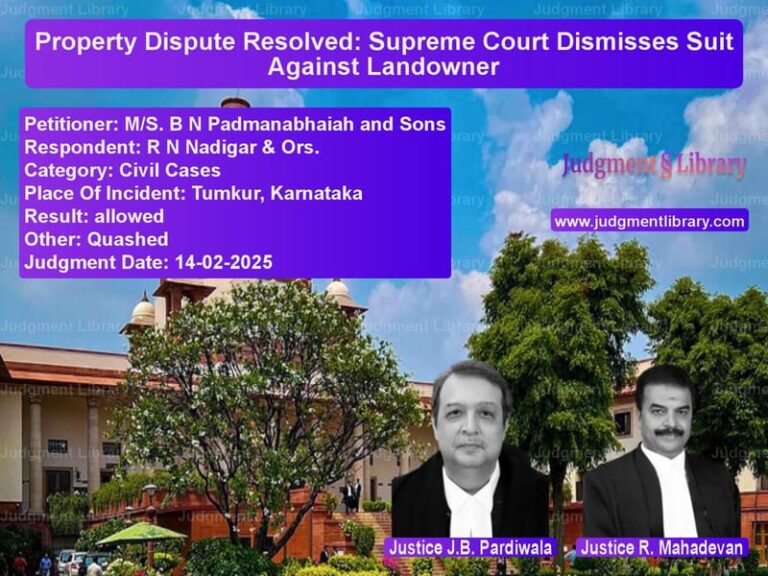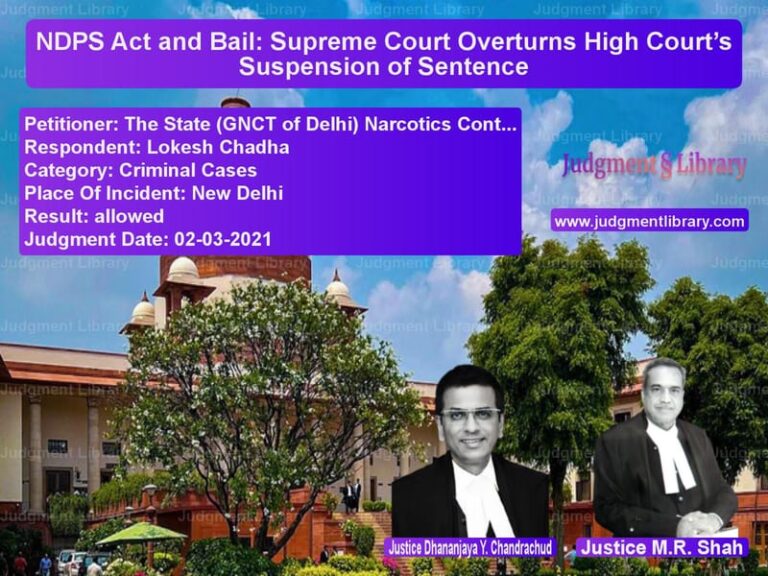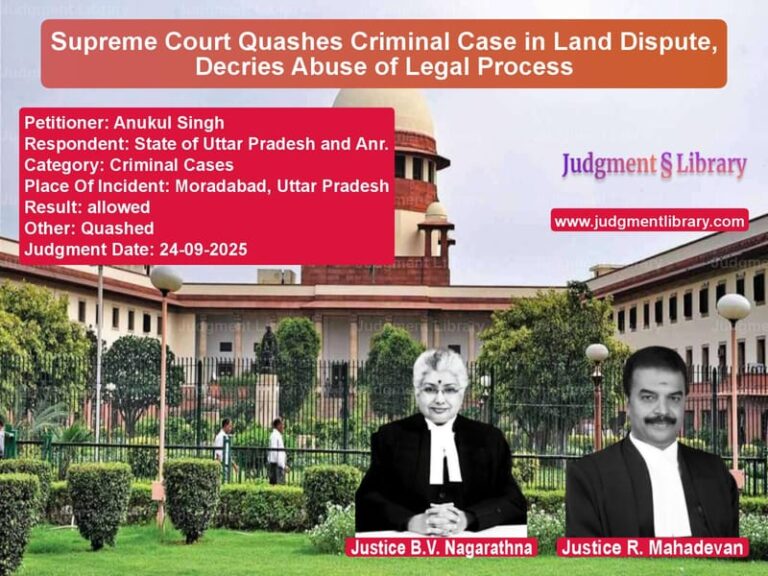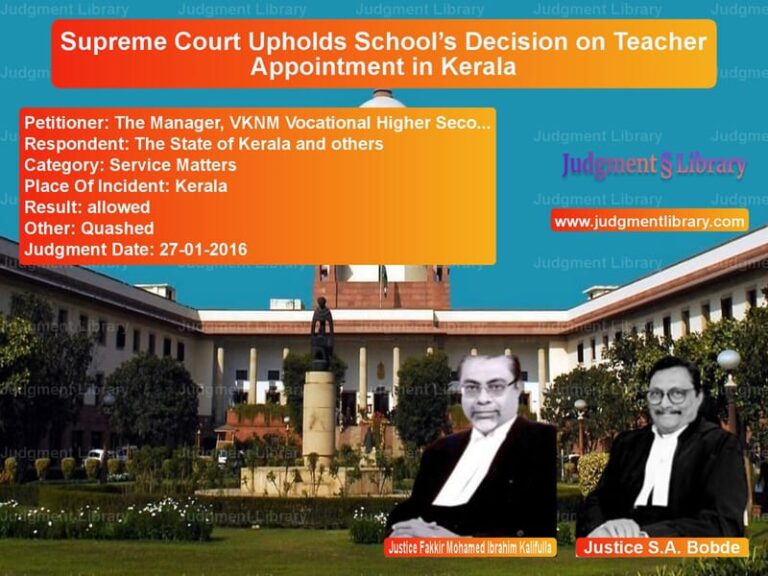Supreme Court Mandates Accessible Digital KYC for Persons with Disabilities
The Supreme Court of India recently delivered a landmark judgment in the case of Pragya Prasun & Ors. vs. Union of India & Ors., addressing the critical issue of accessibility in digital KYC processes for persons with disabilities. The judgment, pronounced on April 30, 2025, by Justices J.B. Pardiwala and R. Mahadevan, emphasizes the need for inclusive digital infrastructure to ensure that no individual is left behind in the era of digital transformation.
The case involved two writ petitions filed by acid attack survivors and a visually impaired individual, highlighting the barriers they faced in completing digital KYC processes due to their disabilities. The petitioners argued that the current digital KYC norms, which require tasks like blinking eyes or reading text on screens, are inaccessible to persons with facial disfigurements and visual impairments. They sought directions to the government and regulatory bodies to formulate alternative methods for conducting digital KYC, ensuring accessibility for all.
The petitioners, represented by their counsel, submitted that the digital KYC process violates their fundamental rights under Article 21 of the Constitution, which guarantees the right to life with dignity. They relied on several precedents, including Rajive Raturi v. Union of India & Others and Disabled Rights Group & Anr. v. Union of India & Ors., where the Court recognized accessibility as a fundamental right integral to the rights to life, dignity, and freedom of movement.
The respondents, including the Reserve Bank of India (RBI), Telecom Regulatory Authority of India (TRAI), and other regulatory bodies, acknowledged the challenges faced by persons with disabilities but highlighted the mandatory nature of KYC norms under the Prevention of Money Laundering Act (PMLA), 2002. They argued that these norms are essential to prevent fraud and money laundering. However, they expressed their commitment to ensuring accessibility and reasonable accommodations for persons with disabilities.
The Court, after examining the submissions, held that the current digital KYC processes disproportionately exclude persons with disabilities, violating their constitutional and statutory rights. The judgment underscored the principle of ‘reasonable accommodation’ under the Rights of Persons with Disabilities (RPwD) Act, 2016, which mandates necessary modifications to ensure equal access for persons with disabilities.
In its ruling, the Court issued a series of directives to ensure inclusivity in digital KYC processes. These include:
(i) The respondent authorities shall direct all regulated entities to follow accessibility standards and appoint nodal officers for compliance.
(ii) All regulated entities must undergo periodic accessibility audits and involve persons with disabilities in the testing phase of digital platforms.
(iii) The RBI shall issue guidelines for alternative methods of verifying ‘liveness’ in digital KYC, beyond the traditional ‘blinking of eyes’.
(iv) The respondent authorities shall ensure that digital platforms comply with Web Content Accessibility Guidelines (WCAG) and other national standards.
(v) A dedicated grievance redressal mechanism shall be established for persons with disabilities to report accessibility issues.
The Court emphasized that the right to digital access is an intrinsic component of the right to life and liberty under Article 21 of the Constitution. It called for proactive measures to bridge the digital divide and ensure that digital transformation is inclusive and equitable for all citizens, especially marginalized groups.
The judgment reaffirms India’s commitment to the United Nations Convention on the Rights of Persons with Disabilities (UNCRPD) and the principles of inclusivity and accessibility enshrined in the RPwD Act, 2016. It sets a precedent for future cases involving digital accessibility and the rights of persons with disabilities.
Petitioner Name: Pragya Prasun & Ors..Respondent Name: Union of India & Ors..Judgment By: Justice J.B. Pardiwala, Justice R. Mahadevan.Place Of Incident: India.Judgment Date: 30-04-2025.Result: allowed.
Don’t miss out on the full details! Download the complete judgment in PDF format below and gain valuable insights instantly!
Download Judgment: pragya-prasun-&-ors.-vs-union-of-india-&-ors-supreme-court-of-india-judgment-dated-30-04-2025.pdf
Directly Download Judgment: Directly download this Judgment
See all petitions in Fundamental Rights
See all petitions in Public Interest Litigation
See all petitions in Judgment by J.B. Pardiwala
See all petitions in Judgment by R. Mahadevan
See all petitions in allowed
See all petitions in supreme court of India judgments April 2025
See all petitions in 2025 judgments
See all posts in Constitutional Cases Category
See all allowed petitions in Constitutional Cases Category
See all Dismissed petitions in Constitutional Cases Category
See all partially allowed petitions in Constitutional Cases Category

